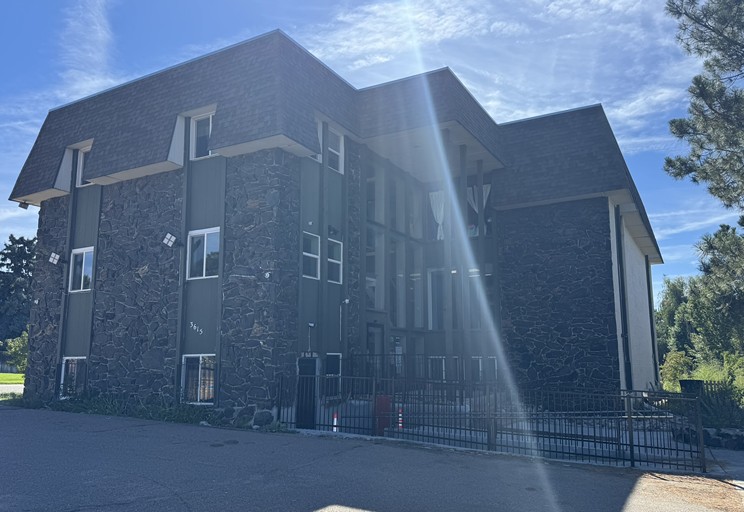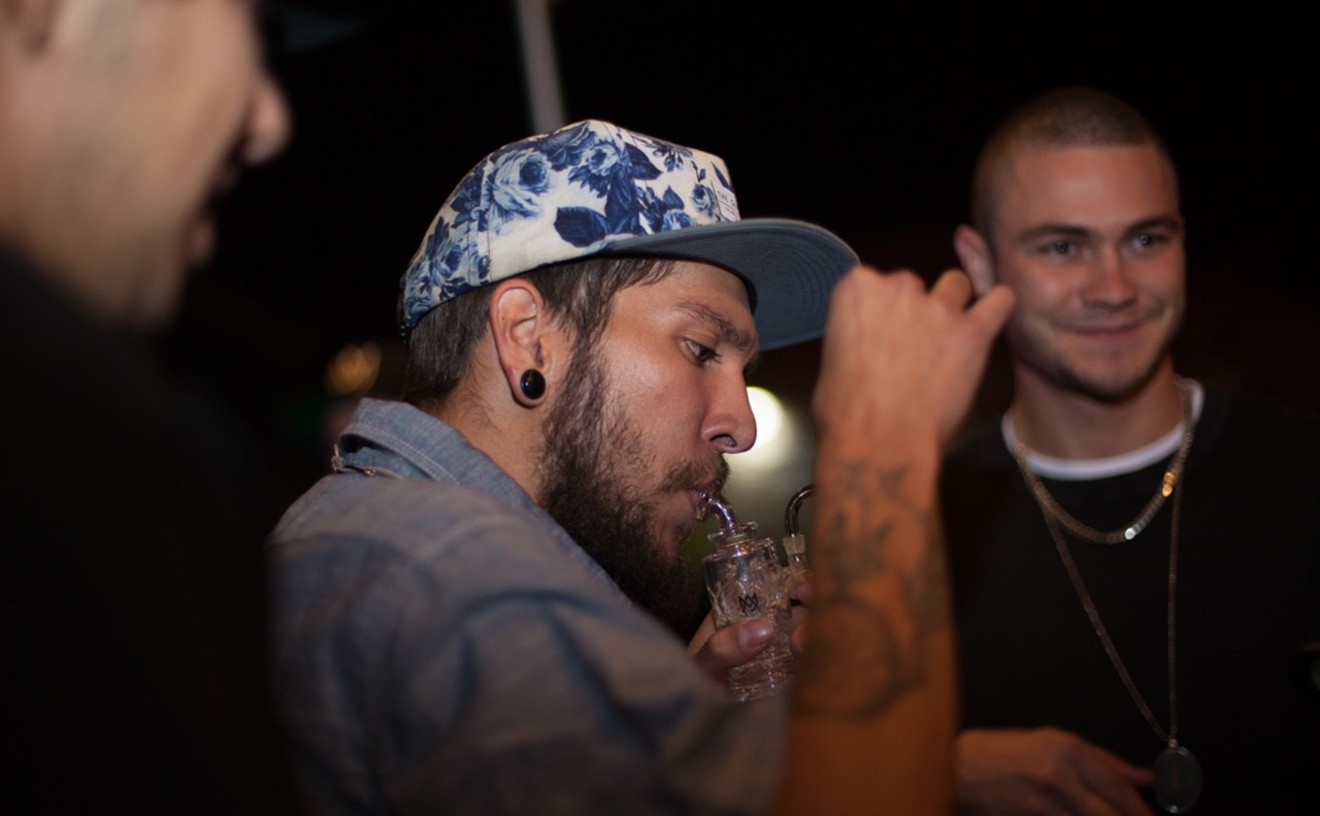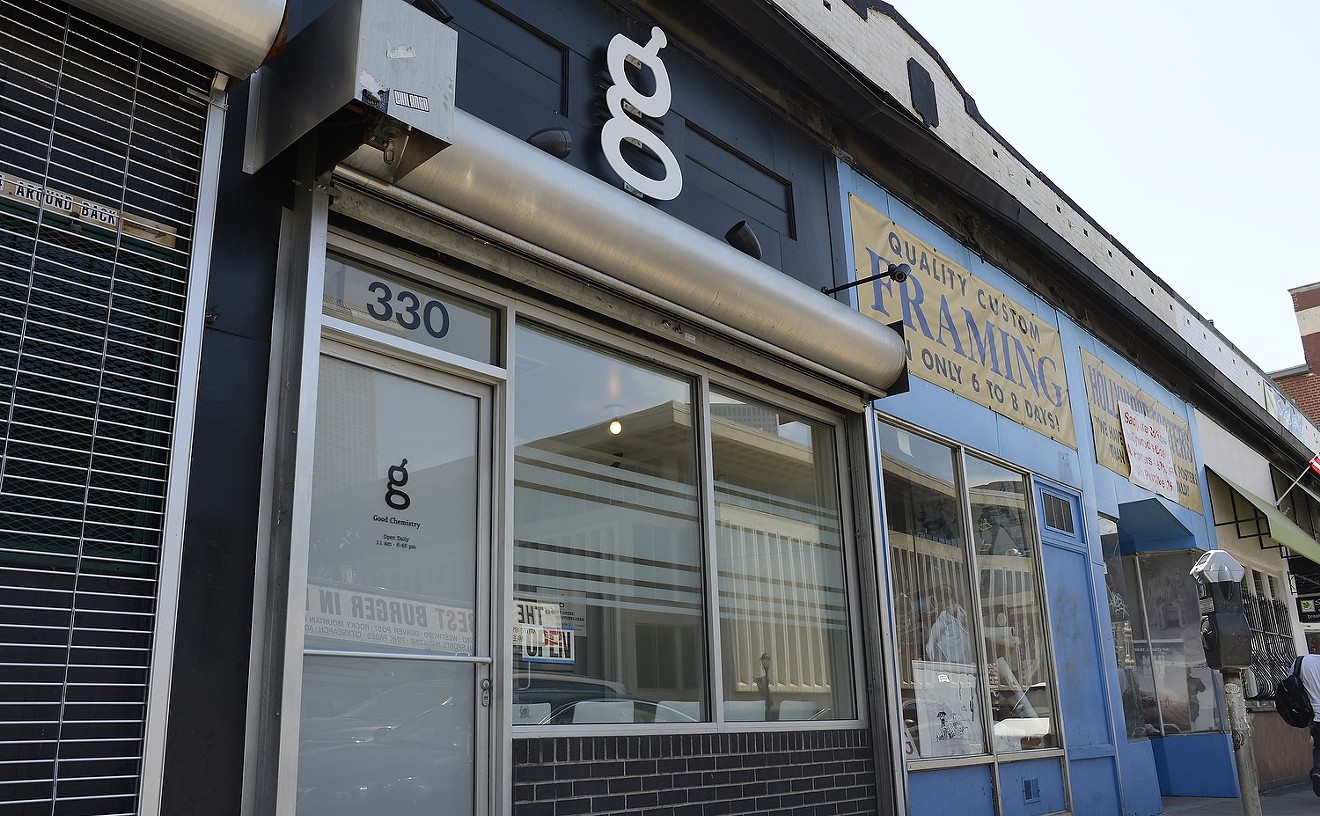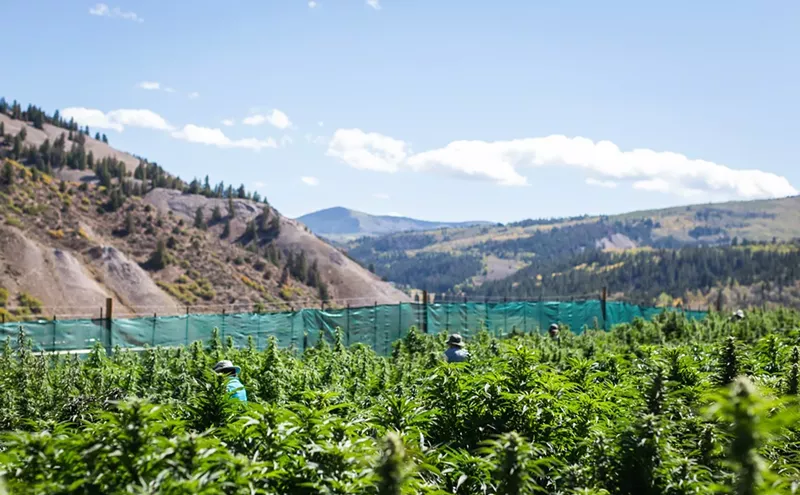His dad, Fred Harris, spent over twenty years in prison after being arrested in 1999 for cocaine possession. According to Lewis, past cannabis charges on Harris's record were enough for the judge to increase his sentence to 96 years in prison instead of the ten to twelve years they expected.
Lewis successfully lobbied for his father to be granted clemency by Governor Jared Polis in 2021, and he and Harris have since been working together on Lewis's various business and charity ventures — including retail cannabis. Through Colorado's social equity marijuana licensing program, the two will soon open Jungle Feva dispensary at 3615 South Tamarac Drive in southeast Denver.
"I fought for three years to get him out of prison," Lewis says of his father. "Now this is just a little payback. Just being able to be business partners with my dad after being separated for 22 years is more than exciting. It's an opportunity for us to build not only as father and son, but as friends."
Their new store will have its grand opening on October 15, according to Lewis, who says the business venture has been a great chance for Lewis to reconnect with his dad, whom he now calls his "bro."
"We've had a lot of time to not be together, but now we get to reconnect," Lewis says. "We pretty much built the place out together: we painted, we did the flooring, we put in the baseboards. Literally, we've been in there slaving."
Lewis won a Colorado state basketball championship at Denver's East High School in 1999 and later went on to play in college and professionally overseas. He's still connected to the game, but now considers himself a "serial entrepreneur." The 43-year-old owns and runs the charity SweetFeet, which donates shoes to underprivileged kids in Colorado and California, and publishes BAC Magazine (short for Become a Champion), a basketball-centric publication.
The dispensary will have a jungle theme, with palms and birds in the logo and murals on the wall. Lewis wants Jungle Feva to promote a love for nature, Lewis says. Customers will be able to learn how to grow gardens, and he promises to hire employees who live within a few miles of the dispensary.
Lewis is opening Jungle Feva with the help of a social equity marijuana license, which he obtained thanks to his father's past charges. Per Denver's local licensing rules, until 2027 business owners can only be granted a new marijuana license if they qualify for a social equity designation intended to benefit communities impacted by the drug war. To be eligible, an applicant or their families must have been arrested on certain drug charges, earn less than 50 percent of the state median income, or come from a community designated as a low-economic opportunity zone. "I fought for three years to get him out of prison," Lewis says of his father. "Now this is just a little payback. Just being able to be business partners with my dad after being separated for 22 years is more than exciting. It's an opportunity for us to build not only as father and son, but as friends."
Their new store will have its grand opening on October 15, according to Lewis, who says the business venture has been a great chance for Lewis to reconnect with his dad, whom he now calls his "bro."
"We've had a lot of time to not be together, but now we get to reconnect," Lewis says. "We pretty much built the place out together: we painted, we did the flooring, we put in the baseboards. Literally, we've been in there slaving."
Lewis won a Colorado state basketball championship at Denver's East High School in 1999 and later went on to play in college and professionally overseas. He's still connected to the game, but now considers himself a "serial entrepreneur." The 43-year-old owns and runs the charity SweetFeet, which donates shoes to underprivileged kids in Colorado and California, and publishes BAC Magazine (short for Become a Champion), a basketball-centric publication.
The dispensary will have a jungle theme, with palms and birds in the logo and murals on the wall. Lewis wants Jungle Feva to promote a love for nature, Lewis says. Customers will be able to learn how to grow gardens, and he promises to hire employees who live within a few miles of the dispensary.
Denver's Marijuana Social Equity Program
Denver has awarded 57 social equity licenses since 2021, according to the Denver Department of Excises & Licenses; Lewis and his father secured theirs in 2022. He considers himself and his dad "the faces of social equity in Denver," because he had been advocating for the idea from early on.
Lewis says he wants to see more Black and brown dispensary owners enter the market with the help of the social equity license, but he doesn't see many who have stayed in business or opened up in Colorado's current cannabis climate, which has experienced a sustained recession since 2022.
"All the other social equity people that I've talked to that are Black or brown, none of them have opened their business, and the few that have, they're already shutting their stuff down."
According to the Colorado Marijuana Enforcement Division's last ownership demographic report, in July 2023, nearly 19 percent of licensed marijuana business owners in the state identified as a minority, up from 15.2 percent in 2021. However, Colorado has seen an exodus of marijuana licenses over the past year, with growing permits alone dropping by 20 percent.
"Right now, the cannabis industry in Denver is facing the first-ever marijuana recession, with sales down dramatically since the peak of sales during the middle of the pandemic," notes Eric Escudero, Excise & Licenses communications director.
"Social equity applicants already had it tough because they are trying to enter an established market with steep competition," he explains. "And now they are trying to do it during a time of the worst marijuana recession since initial legalization of recreational marijuana."
Denver can't make a licensing decision solely based on race, but the city is "proud that this program is helping people of all different races," Ecudero says. "Denver is the only city in Colorado with licensing exclusivity for social equity applicants."














